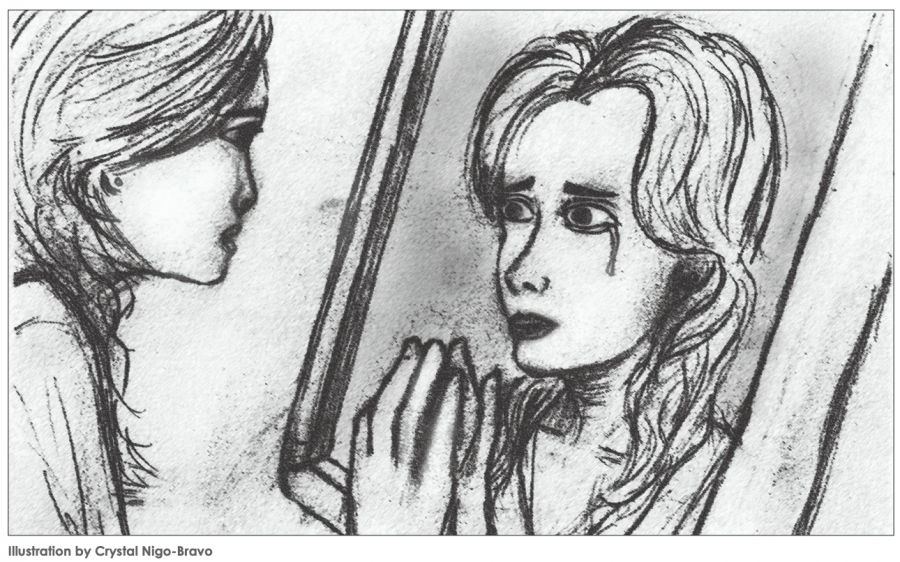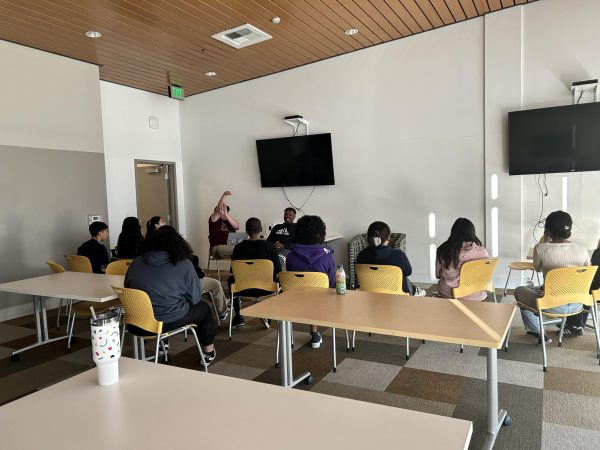When the Boss Gets Bullied
It didn’t help that she was a newcomer and a woman
Illustration by Crystal Nigo-Bravo
For Jennifer Ramirez, who grew up in Koreatown, few moments in her life matched the excitement of being promoted to store manager at the retail chain store where she worked – in Santa Monica, no less.
She had worked hard and was proud of being rewarded for exceeding her sales goals at her former location in Glendale.
But weeks into the job, her passion for work began to fade.
Instead of supporting her, she said the assistant manager – who had been running the store while the job was vacant – turned other employees against her.
“They often critiqued my outfits, telling me I didn’t fit in with the Santa Monica crowd,” Ramirez said. “I tried to ignore it but after a while it started hurting my feelings, to the point where I spent money on a new wardrobe just to fit in.”
“I always saw myself as a fair and cool boss. I bought lunch, coffee or anything to motivate my staff,” she said. But she said nothing seemed to work in her new location because she said the assistant manager “would make the energy or vibe in the store awkward.”
Work-related anxiety started affecting her mental and emotional health. She said she began questioning herself and her abilities, slowly losing confidence.
Ramirez isn’t alone. Experts say it’s not unusual for the newcomer in a workplace to be bullied, especially if they have taken a job an internal candidate was gunning for. A 2010 government study in Australia found another trend: Bullying against superiors, with female managers being disproportionately affected.
A Gallup survey conducted several years ago showed that 19 percent of employees are aware of bullying – in various forms – in their workplace. What’s more, work-related stress can not just affect the mental health of employees, but it can also affect their physical health, productivity and behavior, according to the Mayo Clinic.
About 83 percent of U.S. workers suffer from work-related stress and 42.5 million adults deal with anxiety or mental disorders – with the Latinx community accounting for 15 percent of those adults, according to a report by the American Institute for Stress and Mental Health America (MHA).
In some immigrant communities, mental illness is either considered a stigma or not taken seriously, according to a UT Community News article earlier this year.
Ramirez has experienced that. “Coming from a Latino home we’ve always been told to be strong,” she said.
She talked to her sisters about her feelings and they tried to help, suggesting that the symptoms might be a cause of dealing with a “new job.”
Still, Ramirez said she knew something was very wrong.
Months into the job, Ramirez said her anxiety about work seeped into her private life. “I would hate places surrounded by a crowd of people. I was so depressed that I lost 20 pounds,” she said.
The hour-long drive to work from Van Nuys to Santa Monica was grueling to start with but it soon became almost unbearable because she couldn’t fend off thoughts in her head about what people would do or say to her. She developed cold sweats and knots in her stomach on some days.
One day in September 2013, she recalled taking her 6-year-old daughter to Disneyland to celebrate her birthday: It is “the happiest place on Earth…but I wasn’t really there. The drive, sales, customers, rebellious employees was all I could think of.”
During the drive to her 3 p.m. shift at work the next day, she said she badly wanted to turn around and go home.
I can’t give up. I need to keep driving, she recalled thinking.
“I was honestly scared, anxious, numb, shakey; just sick to my stomach,” she said, holding back tears.
As she parked her Beetle, Ramirez sensed it: “This day was different.”
She walked through the store in a daze: “I was trembling, really sweaty; There were so many people in the store. I walked directly to the bathroom in the back, feeling like I was going to faint. I remember my palms being really sweaty as I held my phone. I could not believe the tightness in my chest.”
She didn’t know what to call it at the time, but she later learned that a panic attack had overtaken her body and mind.
The first call was to her then-boyfriend. She was sobbing. He advised her to quit and drive back home. Despite a phone call, he could not be reached for comment.
After several minutes, a knock at the door broke the silence in the bathroom.
That was the moment she knew what she needed to do.
“My mind was made up. I needed to take control of this because I knew this was not normal,” she said. “I walked out and in front of the employee, I dialed my boss and told her, ‘I quit.’ Leaving my work keys behind, I walked out, not [caring] what came next.”
The employee seemed shocked.
It felt right. For the first time in a long time, she felt good.
It “gave me a breath of life,” she said. The fear of “not being good enough” to find another job or losing her seniority with her employer no longer mattered to her.
When it comes to mental health, being informed and proactive can make all the difference, said Rosa Soto, executive director of the Wellness Center in East LA.
It’s critical for folks to understand various mental health issues such as anxiety so when symptoms become more prominent, they can “link it with someone who can help.”
She added: “It is important to be aware of all of the mental health conditions and resources so that you are not alone dealing with what you’re going through.”
Six years removed from what said was the darkest part of her life, she has found a renewed passion as a business specialist for one of the biggest retail banks in the country. According to Ramirez, she no longer suffers from anxiety thanks to “private therapy” and “daily visits to the gym.”
She admires the bank’s approach to promoting a healthy work environment offering employee assistance programs for work violence, marriage counseling and other issues. Materials about these programs are found throughout the organization, she said, from the “break room to the restroom.”
Her advice for others like her is not to wait too long to ask for help. She also sees a silver lining in the problems she faced: “I am able to help individuals [who] feel the same way I did and help with my personal advice, and if these symptoms ever return I know exactly how to handle it.”
Mental Health Counseling Resources
Cal State LA Student Health Center’s Counseling and Psychological Services and Psychiatry
(323) 343-3314
Monday – Thursday: 8:30 a.m. – 5:45 p.m. Fridays: 8:30 a.m. – 4:45 p.m.
Located at the main walkway between the Career Development Center and the Wallis Annenberg Integrated Sciences Complex.
The Wellness Center at the Historic General Hospital
Counseling, Therapy, & Peer Support
(213)-784-9191
https://www.thewellnesscenterla.org/counseling-therapy-peer-support
1200 N. STATE STREET LOS ANGELES, CA 90033
Monday – Friday: 8:30 a.m. – 5 p.m.
Saturday: 9 a.m. – 11:30 a.m.
Los Angeles County Department of Mental Health
https://dmh.lacounty.gov/our-services/
National Suicide Prevention Lifeline (24-hours, 7 days a week)
1-800-273-8255
Community News reporters are enrolled in JOUR 3910 – University Times. They produce stories about under-covered neighborhoods and small cities on the Eastside and South Los Angeles. Please email feedback, corrections and story tips to [email protected].








